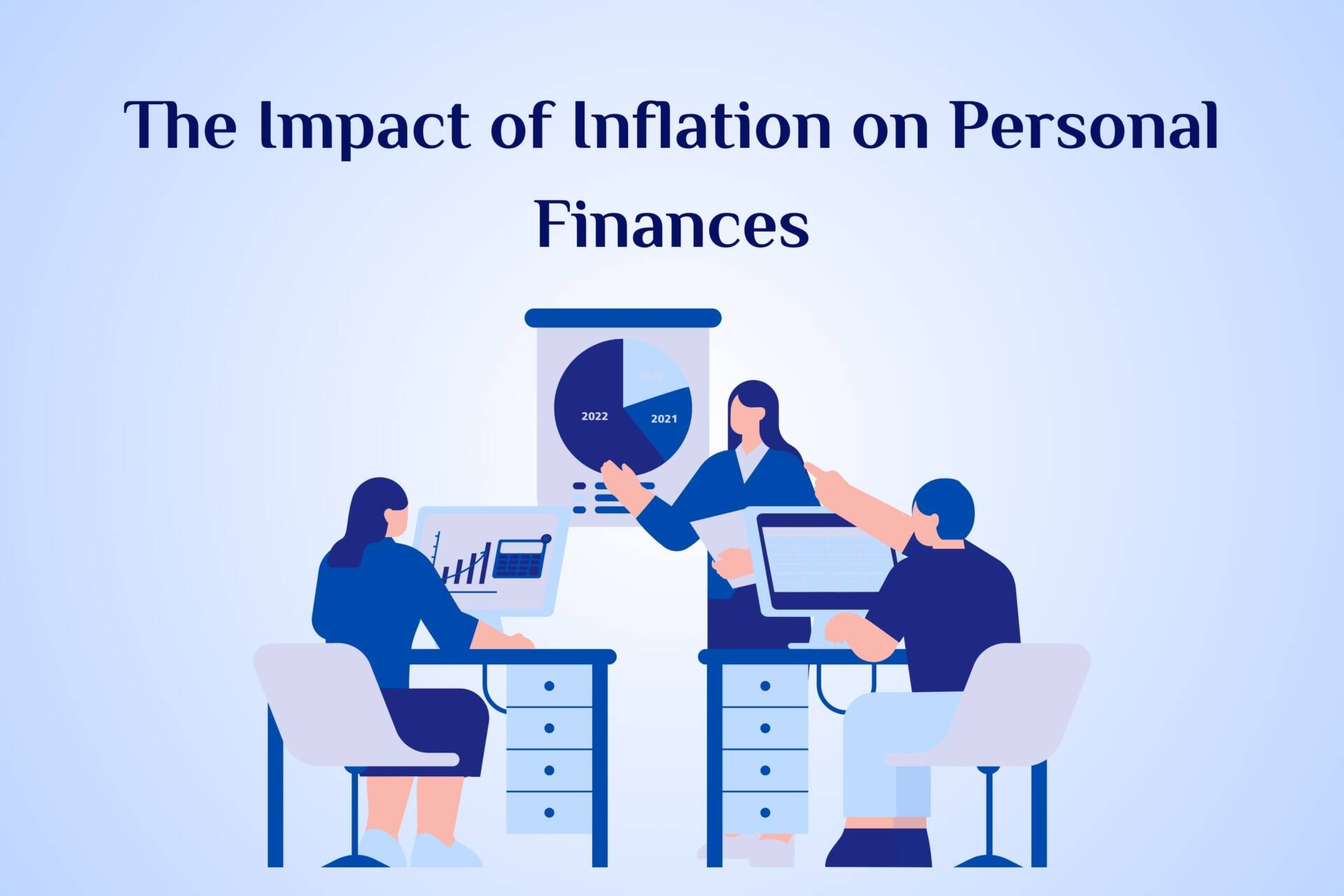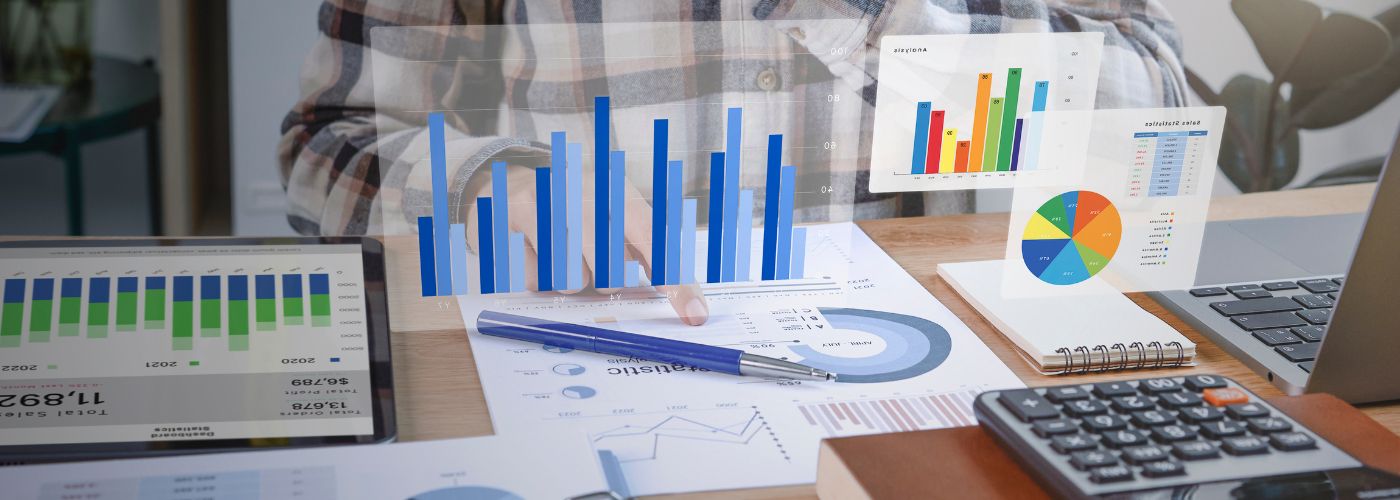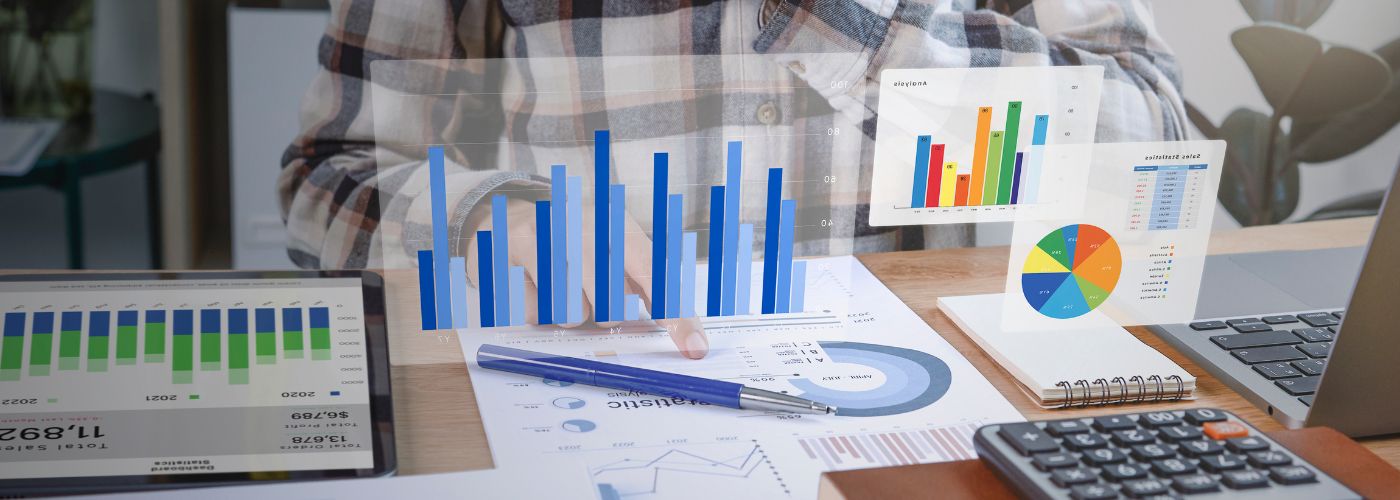The Impact of Inflation on Personal Finances
Introduction
Inflation is defined as the progressive increase in an economy’s overall price level of goods and services over time. When there is inflation, the purchasing power of money falls, which means that the same amount of money can buy fewer products and services. This directly affects personal finances. The cost of living rises as prices rise, making it more expensive to acquire everyday products and maintain a given level of life. Inflation reduces the value of savings by reducing the purchasing power of money in the future.
It can also have an impact on investment returns and interest rates, influencing investment growth and borrowing costs. Individuals may need to explore tactics such as investing in assets that can outrun inflation, altering their spending habits, and exploring higher-yielding savings and investment options to reduce the effects of inflation on personal finances.
The Impact of Inflation on Personal Finances
Inflation can have a considerable impact on personal finances, affecting many elements of a person’s financial well-being. Here are some of the most significant ways that inflation can affect personal finances:
- Reduced purchasing power: Over time, inflation erodes the value of money. The same amount of money may buy fewer goods and services when the general price level rises. Individuals may have to spend more money in order to retain their existing standard of living. It can reduce disposable income and make meeting financial goals more difficult.
- Increased cost of living: As a result of inflation, the prices of products and services rise. Housing, utilities, healthcare, and education are all becoming more expensive. Individuals may struggle to keep up with rising expenditures, especially if their income does not rise at the same rate.
- Impact on savings: Over time, inflation can destroy the value of investments. When the rate of inflation surpasses the rate of return on savings accounts or low-yield investments, the buying power of the money is reduced. Individuals may struggle to accomplish long-term financial goals, such as saving for retirement or education, because their savings may not keep up with inflation.

- Investment returns: Inflation can have an impact on investment returns. If the returns on investments, such as stocks, bonds, or mutual funds, do not outperform inflation, the real return (adjusted for inflation) may be lower than projected. It can impede investment growth and make long-term wealth accumulation difficult.
- Impact on debt: Inflation can have a mixed effect on debt. In some circumstances, it can lower the real burden of debt since borrowers repay loans with money that is worth less in real terms. However, if interest rates rise in tandem with inflation, it might result in greater borrowing costs, making debt more expensive to carry.
Conclusion
In conclusion, inflation can have a significant impact on one’s own finances. It reduces the purchasing power of money, raises the cost of living, depletes savings, has an impact on investment returns, and has an impact on debt dynamics. Individuals may see a decrease in disposable income, struggle to accomplish their goals, and suffer difficulties in accumulating wealth over time. To counteract the consequences of inflation, it is critical to diversify investments, modify spending habits, pursue higher-yielding savings and investments, negotiate pay increases, and manage debt effectively. Individuals can negotiate the obstacles offered by inflation by taking proactive measures that preserve their financial well-being and strive for long-term financial stability.



